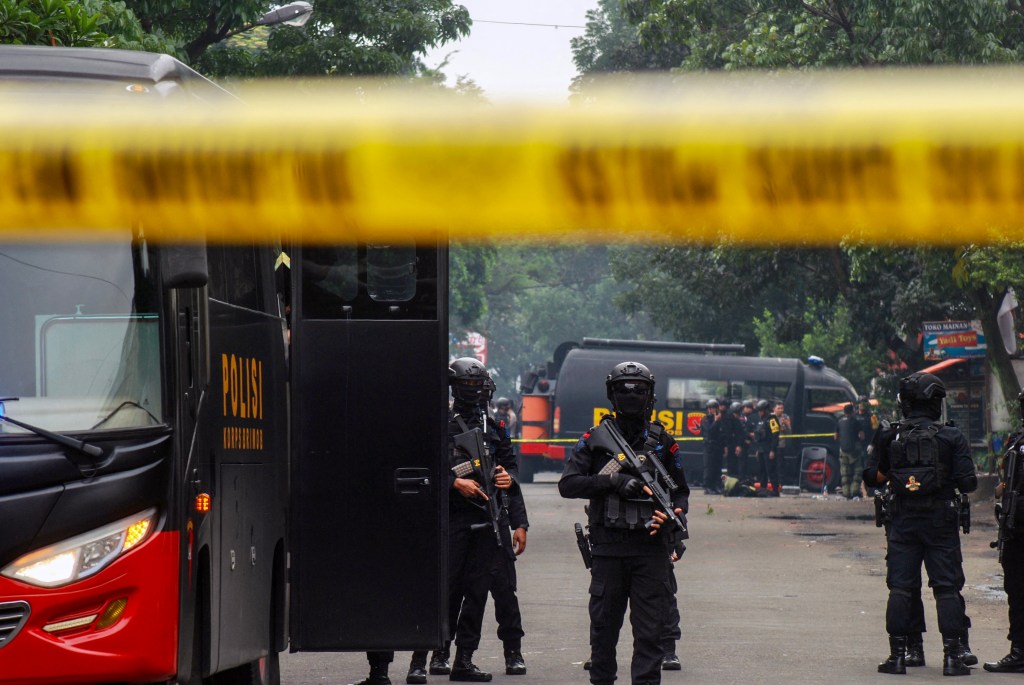Two men in Indonesia’s conservative province of Aceh were publicly caned 77 times after being reported to local Islamic police for having gay sex.
Dozens gathered at a city park on Thursday to witness the couple, aged 27 and 29, repeatedly whipped across their backs by a team of masked enforcers, wearing robes and hoods. Graphic pictures captured both men wincing with pain as the punishment took place.
Videos by VICE
They were allowed a brief break to drink water before the punishment continued.
Indonesian media also reported that the mother of one man fainted on the spot at the sight of her son being whipped.

The couple, who remain unidentified, were reportedly arrested in November after neighbors became suspicious and broke into their apartment where they were caught having sex.
Four others were whipped on the same day over allegations they consumed alcohol or met with members of the opposite sex.
Gay sex is not illegal in Indonesia, the world’s largest Muslim nation—but the topic remains highly taboo. Aceh, a semi-autonomous province located on the northwestern tip of Sumatra island, imposes Sharia law and carries out public canings as a form of punishment.
“Islamic Sharia enforcement is final, no matter who it is,” a public order official told AFP.
“Even visitors must respect local norms and rules.”
In November, a local man convicted of child rape was whipped nearly 150 times while a religious leader was publicly flogged 28 times after he was caught having an affair.
Rights groups lambasted the latest caning in Aceh, calling it “barbaric and cruel”.
“The Indonesian government made commitments in principle to protect LGBT people but it seems President Joko Widodo’s slogan of ‘unity in diversity’ does not genuinely extend to protecting everyone,” wrote Kyle Knight, a senior researcher at Human Rights Watch.
He said that the latest public caning was part of a “troubling trend of anti-LGBT actions.”
“While horrific, the public spectacle of floggings are part of a longstanding pattern of targeted abuse by Aceh authorities against lesbian, gay, bisexual, and transgender people. The abuse also is part of a five-year anti-LGBT campaign driven by many of Indonesia’s national and local leaders with harmful rhetoric and repeated failure to punish abusers.”





